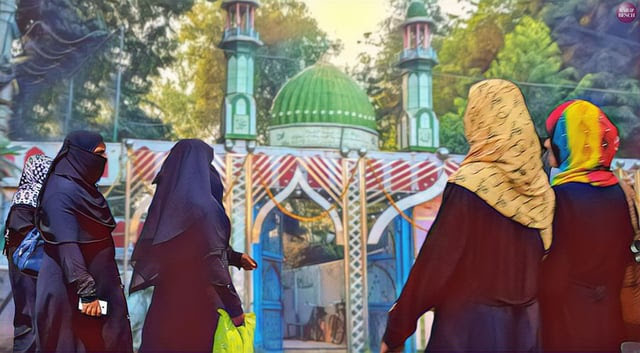Hyderabad, July 31: In a landmark ruling, the Telangana High Court has affirmed the right of women from the Akhbari sect of Shia Muslims to offer prayers at the Ibadat Khana, a mosque in Darulshifa, Hyderabad. The decision, delivered by Justice Nagesh Bheemapaka on July 25, emphasized that the Quran does not prohibit women from entering prayer halls, stated a report by the Bar and Bench.
Justice Bheemapaka cited Chapter 2 of the Quran, Al-Baqarah 222-223, stating, “Except during a particular period given as a ‘rest period’ for women by nature itself, there is no bar against women offering prayers.”
The court also referenced the Supreme Court’s 2018 Sabarimala judgment, which allowed women of menstruating age to enter the Sabarimala temple in Kerala. “This issue is no longer res integra in light of the judgment of the Larger Bench of the Hon’ble Supreme Court in the Sabarimala case,” the High Court noted.
Furthermore, the court highlighted that women from the Usooli sect of Shia Muslims had been permitted by the waqf board to offer prayers at the mosque since 2007. It deemed it discriminatory to bar Akhbari sect women from doing the same.
The ruling came in response to a petition by the Anjumane Alavi Shia Imamia Ithna Ashari Akhbari society, which challenged the denial of access for Akhbari women to conduct religious prayers at the Ibadat Khana. Despite several appeals to the Telangana State Waqf Board, the issue remained unresolved, prompting the society to seek judicial intervention.
In its defense, the Waqf Board argued that religious sentiments and conventions should be respected, even without explicit Quranic prohibition on women’s entry into prayer halls. However, the High Court, referencing its interim order from December 2023 that allowed Akhbari women to pray at the mosque, dismissed this argument.
The court underscored that, according to the Supreme Court’s Sabarimala judgment, Article 25(1) of the Constitution guarantees every individual’s freedom of conscience and the right to profess, practice, and propagate religion without distinction.
Justice Bheemapaka’s decision ensures that all women of the Shia community, regardless of sect, can now offer prayers at the Ibadat Khana, reinforcing the principles of equality and non-discrimination in religious practices.




